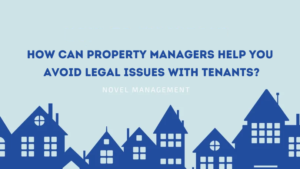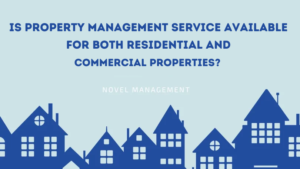As a landlord in Florida, there are several rules to follow under the state’s landlord-tenant laws. Some of these regulations surround a tenant breaking a lease early. In this article, we’ll delve into both unjustifiable and justified grounds to legally break a lease early, ensuring that every landlord is well-informed about their rights and those of their tenants.
Understanding Rental Agreements in the State of Florida
Having a detailed lease or rental agreement is vital when renting out a rental. As a landlord, you must ensure that a tenant understands the behaviors that could result in eviction from the rental unit, what their rights are during the tenancy, and when rent is due among other things.
When your tenant signs their rental contract, it’s also your responsibility to make sure that they’re aware of the penalties for unjustifiably terminating it, and that they know of their rights for justifiably breaking a lease early.
Your rental agreement must also include the amount of proper notice a tenant must give you, their landlord when seeking to end their periodic lease. In Florida, tenants must, specifically, give their landlord the following kinds of written notice:
- Weekly Agreements – Your tenant must give their landlord 7 days’ notice if they rent weekly.
- Monthly Agreements – Tenants must provide their landlord with 15 to 60 days’ written notice if they rent monthly, depending on the Florida lease agreement.
- Quarterly or Annual Agreements – There is no statute if the tenant rents quarterly or yearly. It’s advisable to check the specific terms mentioned in the lease in Florida and communicate with the landlord.

Unlike in some other states, where a landlord has to try to rent the place again to reduce what the original tenant owes, in Florida, it’s not the landlord’s responsibility. Tenants in the state of Florida usually need to pay rent for the entire lease period, even if they leave before it’s over.
Moreover, a robust lease agreement should outline the tenant’s rights regarding subletting in Florida. In this state, tenants may not sublet the rental unit without the landlord’s consent. To obtain approval, tenants must formally request it, typically via certified mail, and the landlord retains the authority to reject such requests.
Unjustified Grounds to Break a Lease Early in Florida
The reasons listed below, generally, do not provide enough justification for tenants to break a lease agreement, and as a result, do not provide any legal protection against penalties:
- The tenant purchasing a house
- Tenants are relocating for school or work
- The tenant is upgrading or downsizing their living accommodations
- The renter is moving in with their partner
- The tenant wants to be closer to family
Breaking a lease or rental agreement in Florida for any of the above motives without court approval can have tangible legal and financial consequences for tenants.
Legally Justifiable Motives for Breaking a Lease in Florida
There can be many motivators to break a lease under State and Federal law. The following are some legally allowable reasons for early lease termination in Florida:

Active Military Service
Recognizing the unique and often unpredictable nature of military service, the law aims to provide service members facing relocation or deployment with flexibility and support. Tenants on Active Military Duty have legal grounds to terminate their lease in Florida. This provision reflects a recognition of military personnel’s sacrifices and aims to simplify the transition for military personnel.
A tenant, under Florida law, may break a lease early by providing the landlord with written notice and a copy of their military orders according to the Servicemembers’ Civil Relief Act. This documentation proves the tenant’s military obligations and gives the tenant the legal right to terminate residential leases. When landlords in Florida receive such written notice, they are generally required to release the tenant from the fixed-term lease without imposing penalties or holding them liable for future rent.
Domestic Violence
In cases of domestic violence, a landlord’s primary concern should be the well-being and safety of their tenant. It’s, therefore, necessary for Florida landlords to create a supportive and understanding environment, encouraging tenants to communicate their needs and concerns without fear of repercussions.
Additionally, landlords should familiarize themselves with local resources and support services available for victims, providing the tenant with information that may assist them in seeking help and protection. By fostering an atmosphere of empathy and cooperation, landlords play a crucial role in ensuring that their rental properties remain havens of security for each tenant facing challenges related to this kind of violence.

Unit is Uninhabitable
Timely and efficient maintenance is not only a legal obligation under Florida law but a fundamental responsibility that landlords bear to ensure the habitability of their rental units. In addressing issues that render a unit uninhabitable, landlords must prioritize the prompt resolution of problems such as water leaks, electrical malfunctions, or structural issues that compromise the safety and comfort of the living space.
Regular inspections and proactive maintenance can help identify potential problems before they escalate, contributing to a positive tenant experience and preventing the deterioration of the rental property. By taking a proactive stance on habitability, landlords not only fulfill legal requirements but also demonstrate a commitment to providing a quality living environment for their tenants.
Landlord Harassment
Harassment, which compromises a tenant’s right to a peaceful living environment, encompasses various intrusive behaviors such as unwarranted visits, and constant and unnecessary communication. As a responsible Florida landlord, respecting the tenant’s right to privacy is paramount.
Harassment by a Florida landlord should be understood as any actions that infringe on a tenant’s right to peaceful enjoyment of their home which can include discriminatory housing practices. Emphasizing positive landlord practices in addressing habitability and harassment issues reinforces the commitment to providing safe and comfortable living spaces for the tenant.
Bottom Line
There you have it, a comprehensive guide to early lease terminations in the state of Florida. As a landlord, you should also remain informed of security deposit laws, the Fair Housing Act, and any other policies that govern the leasing of residential properties.
If you’re a property owner and have any further questions or need help managing your rentals, please reach out to Novel Management today. We are a highly trusted property management company in Florida and have been working with real estate investors for years. We’d love to work with you to. Contact us today at 305-400-9479!
Disclaimer: Please note that the information provided in this blog is intended for general guidance and should not be considered as a replacement for professional legal advice. It is important to be aware that laws pertaining to property management may change, rendering this information outdated by the time you read it.




